The rare total eclipse of the sun is coming to Texas on April 8th. It’s already a big event that has captured the popular imagination and developed a kind of celebrity status in the news and on social media. Since 1851, only four annular (“ring of fire”) eclipses and two total eclipses have gone through parts of Texas. Last year’s annular eclipse will be the last in Texas until 2056. The next total solar eclipse over Texas will be in 2045. Are you ready?
Since the beginning of recorded history, a total sun eclipse has struck awe, terror and religious rapture into the hearts of those in its path. To the ancient Chinese, an eclipse was a terrifying celestial dragon devouring the sun. To some Native Americans, it was a terrible black squirrel gnawing away at daylight. Both civilizations banged drums and yelled to scare the attackers. Sure enough, the sun returned unharmed. West Africans believed human violence spread to the Sun and Moon, causing a cosmic fight, and they made peace with their enemies to restore heavenly order.
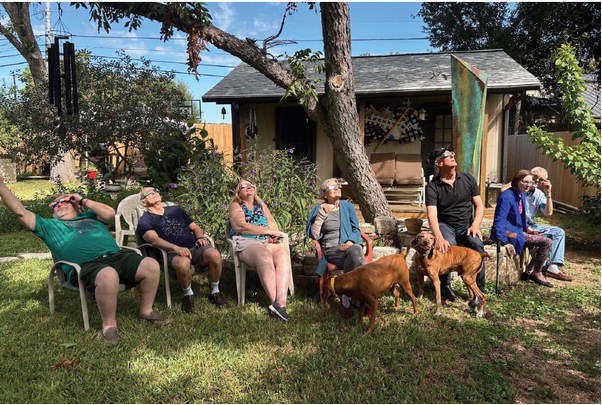
Today, science has unraveled the great mystery of the eclipse. But the event itself is still a fascinating act of nature followed by hundreds of thousands of folks on the eclipse’s celestial road from Texas to Maine are making plans to watch the “totality” – the minutes when the sun is entirely covered by the disk of the moon.
Astronomers track, measure and mark the paths of eclipses. Maps show us the places where they will be visible. Dedicated eclipse watchers follow the sun with zeal, peering through their special filters from boats, mountaintops or wherever the eclipse path leads them.
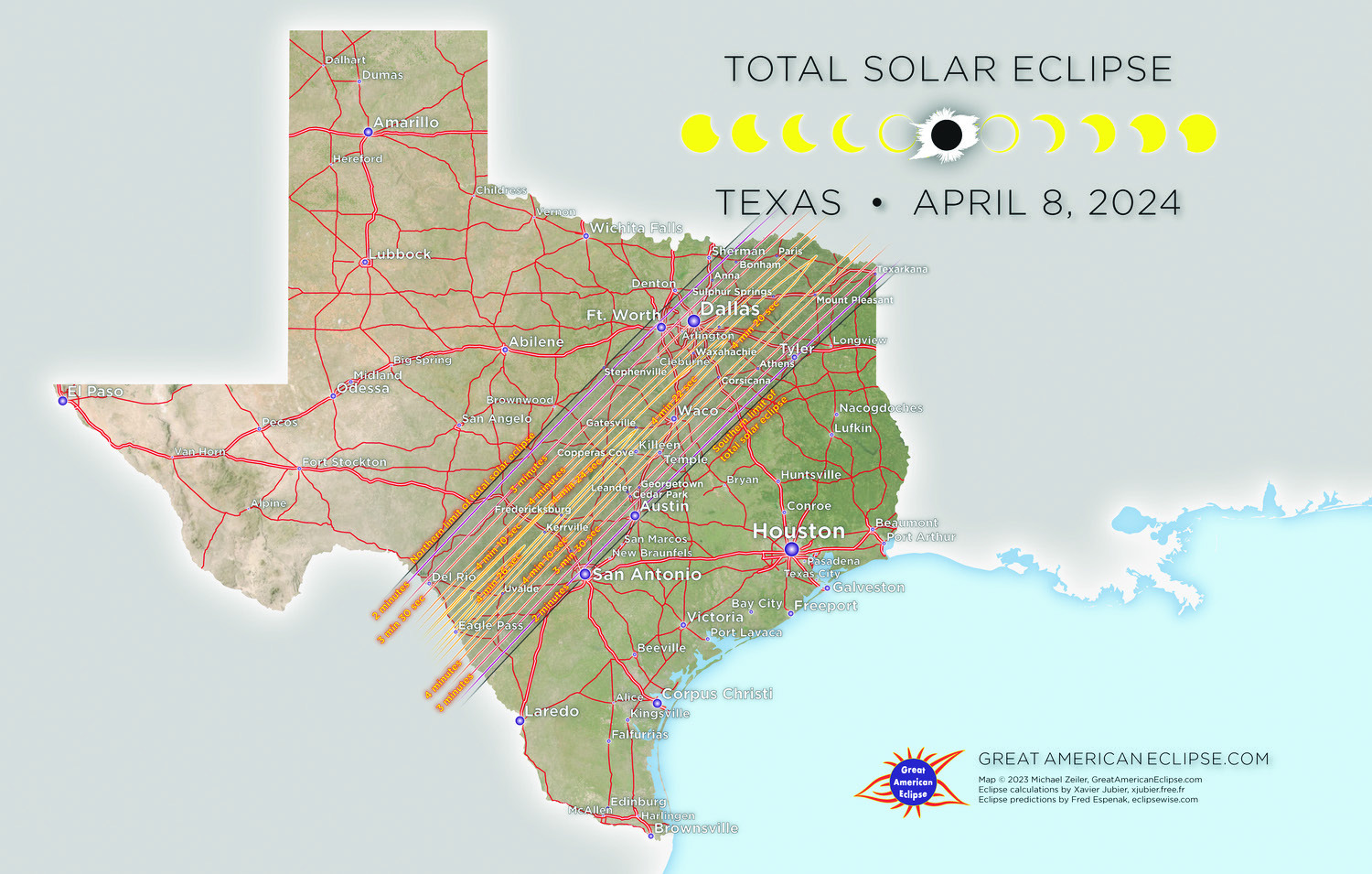
Many cities and towns in the path of the totality have already planned events for the tourists predicted to flock to Texas for the big sky show.
The Texas Parks and Wildlife Department is also putting on educational programs and holding eclipse festivals in state parks in the path of the totality. Waco is putting on a weeklong Eclipse Over Texas festival. The Texas Star Party will host a four-night Solar Eclipse jamboree. NASA will be live-streaming Kerrville’s Dark In the Park eclipse fest.
Austin County is not in the path of totality. However, our area will experience a “deep partial” eclipse – about 96 percent of the sun will be swallowed by the moon’s disk on April 8th between 12:20 and 3 p.m.
It will be a great opportunity to wear protective glasses and gather friends for a backyard viewing party. You’ll be able to watch the eclipse, yes. But to experience that one to four-minute period when the daytime sky is entirely dark and the sun’s corona flares out from the blackness like wisps of fire… well, you’ll have to go to a destination directly on the path.
If you haven’t made travel plans yet, hurry.
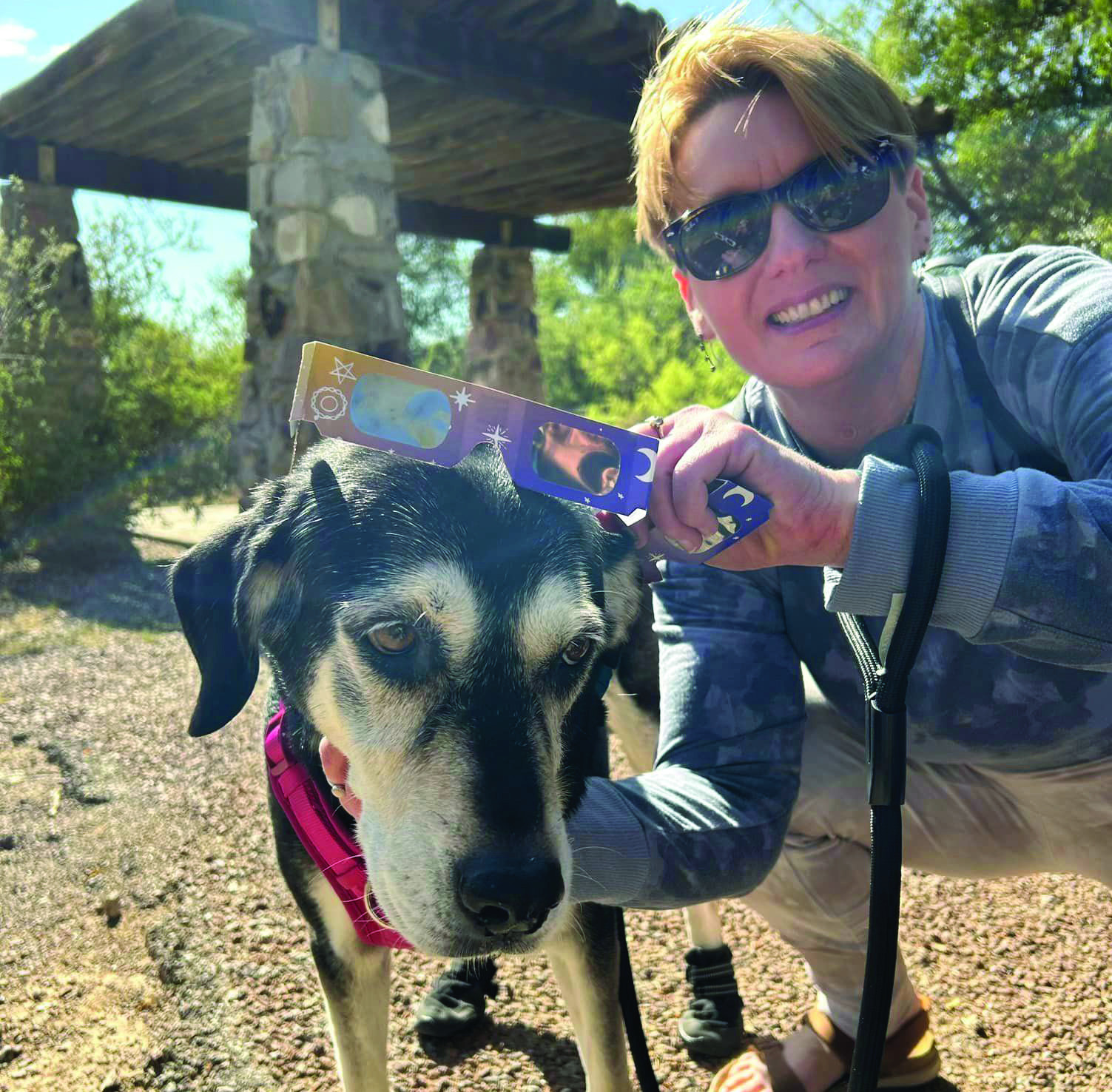
“A lot of hotels are already fully booked,” said Joe Khalaf, president of the Houston Astronomical Society. “It’s going to be hard even to find tent space. Planning is the key. The challenge will be traffic on Interstate 10, I-35 and other highways. Many experienced people wait to leave for home until the day after the eclipse.”
Many towns and cities will capitalize on the excitement by planning public events. Restaurants, hotels, B&Bs and other businesses will do the same. “Bellville will have something going on,” said Larry Kuciemba, Director of the Bellville Economic Development Corporation. “This town is very forward-thinking. We have a lot of events around Courthouse Square and bed and breakfasts, and we’re currently working on a hotel.”
Just because you’re “off the path” doesn’t mean you can’t be part of the nationwide eclipse excitement. There will be a lot of tourist traffic and business for B&Bs and hotels since those in the path of totality are likely to be booked by early April.
“We’re already booking for it way out,” said Carol Davis, owner of the popular Blisswood Bed & Breakfast Ranch in Cat Spring.
“We have a regular Stargazer package. But the eclipse — that’s a big one! We have a special Solar Eclipse Experience package. We also had it for the annular eclipse, but this one is much more powerful.”
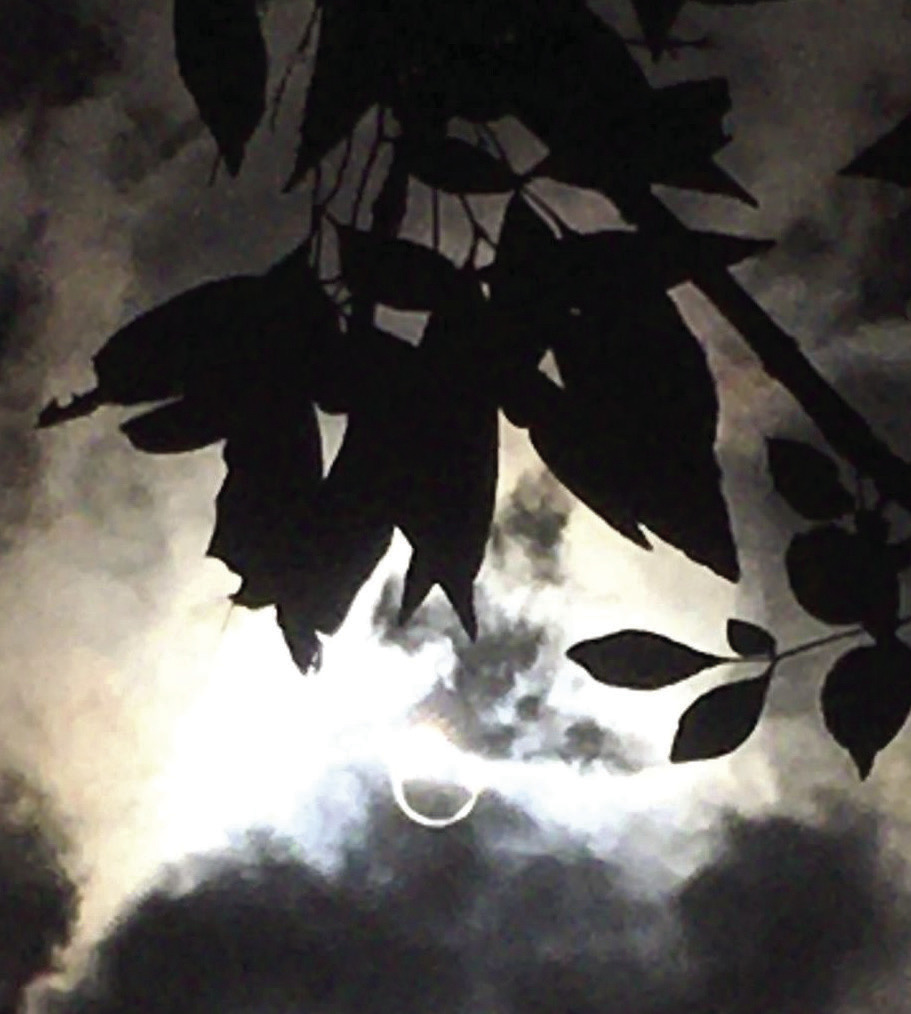
The Eclipse package includes safe eclipse-watching glasses, commemorative T-shirts, keepsake eclipse charms, a photo of you taken during the eclipse, a Blisswood champagne flute and a split of the bubbly to fill it.
Educators hope the eclipse generates added interest in STEM subjects since science and math are involved in understanding the eclipse and calculating the sun’s and moon’s movements.
“A lot of our students went out and saw the annular eclipse on their own,” said Bellville High School Science Department Chairman Michael Kocian. “They were looking at the shadows of the sun and other things. I live in Brenham, and it was just wonderful to see it.”
“Since we’re relatively close to the eclipse totality, I’ve already talked to other teachers about it. We’ll possibly buy eclipse glasses for the science department and take some of our science kids to see it,” Kocian said.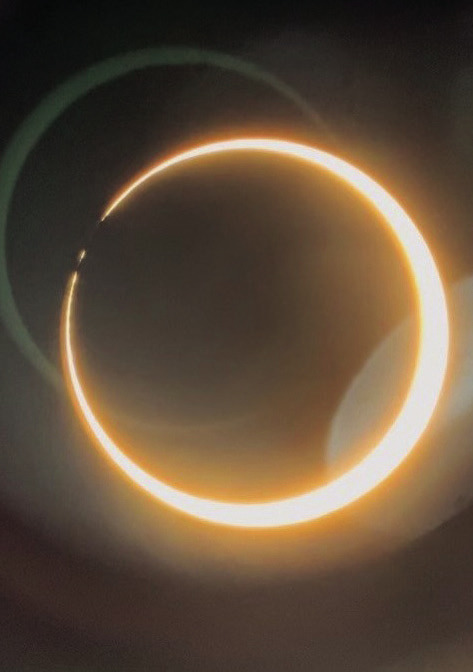
There are plenty of resources to get you up to speed for eclipse day. The Houston Astronomical Society holds Zoom meetings, and the first Thursday of each month is an orientation for novice starwatchers. (Their Zoom link is on their website.)
“We’ll be talking about lots of tips and tricks for eclipse viewing,” Joe Khalaf said.
The Astronomical Society of the Pacific’s Ambassadors Off the Path program is working with NASA to pair amateur astronomers with undergraduate students in underserved communities off the central path of the eclipse. Participants in the three-week workshop pr
ogram will get toolkits full of materials to help engage folks in the excitement of a solar eclipse and spread the learning around.
Texas has the best April weather forecast for any state in the eclipse’s path and the most people in the area of totality — 12 million. A lot of them will be watching the eclipse. Will you?
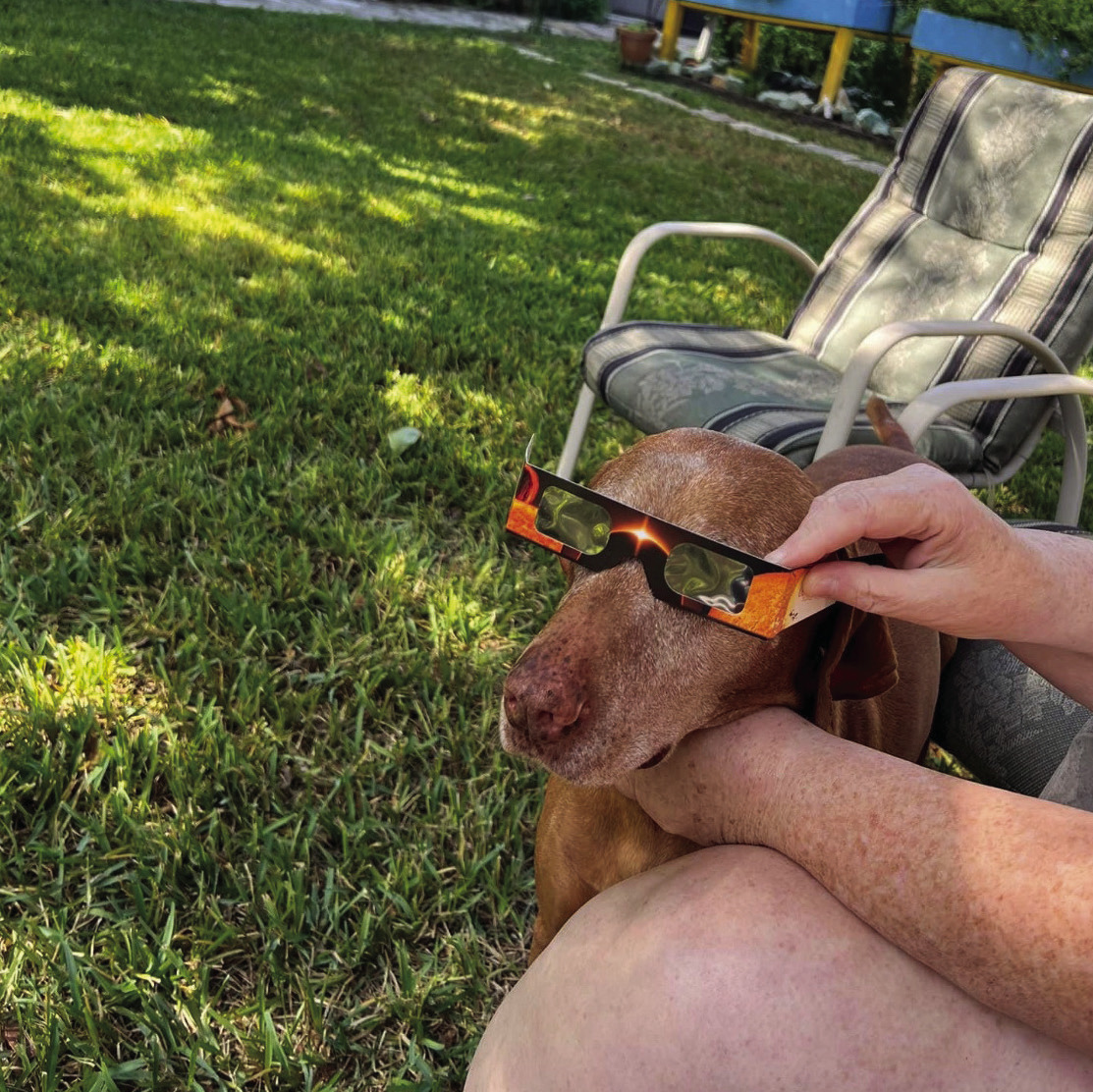
CLICK ON THIS
- Astronomical Society of the Pacific, Astrosociety.org
- Great American Eclipse, Greatamericaneclipse.com/
- Houston Astronomical Society, Astronomyhouston.org/
- Mr. Eclipse, Mreclipse.com
- NASA Night Sky Network, Nightsky.jpl.nasa.gov/clubs-and-events.cfm>
- Texas Parks & Wildlife Department, Tpwd.texas.gov/state-parks/park-information/links/eclipse-viewing
- Texas Star Party, Texasstarparty.org
Susan Yerkes is an award-winning journalist and travel writer based in San Antonio. She has a generational interest in all things celestial; her great-grandfather gave the University of Chicago its Yerkes Observatory and the largest refracting telescope in the world. Yerkes Observatory astronomers operated UT-Austin's McDonald Observatory until the 1960s in Texas.
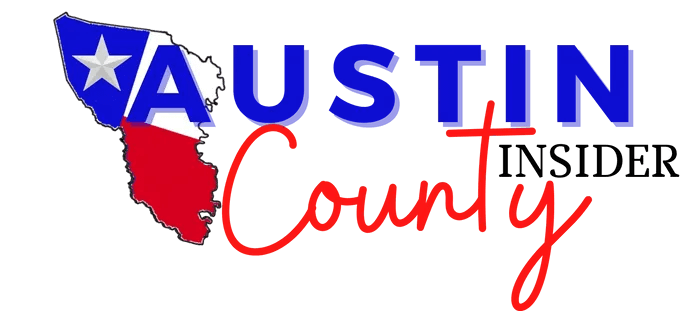
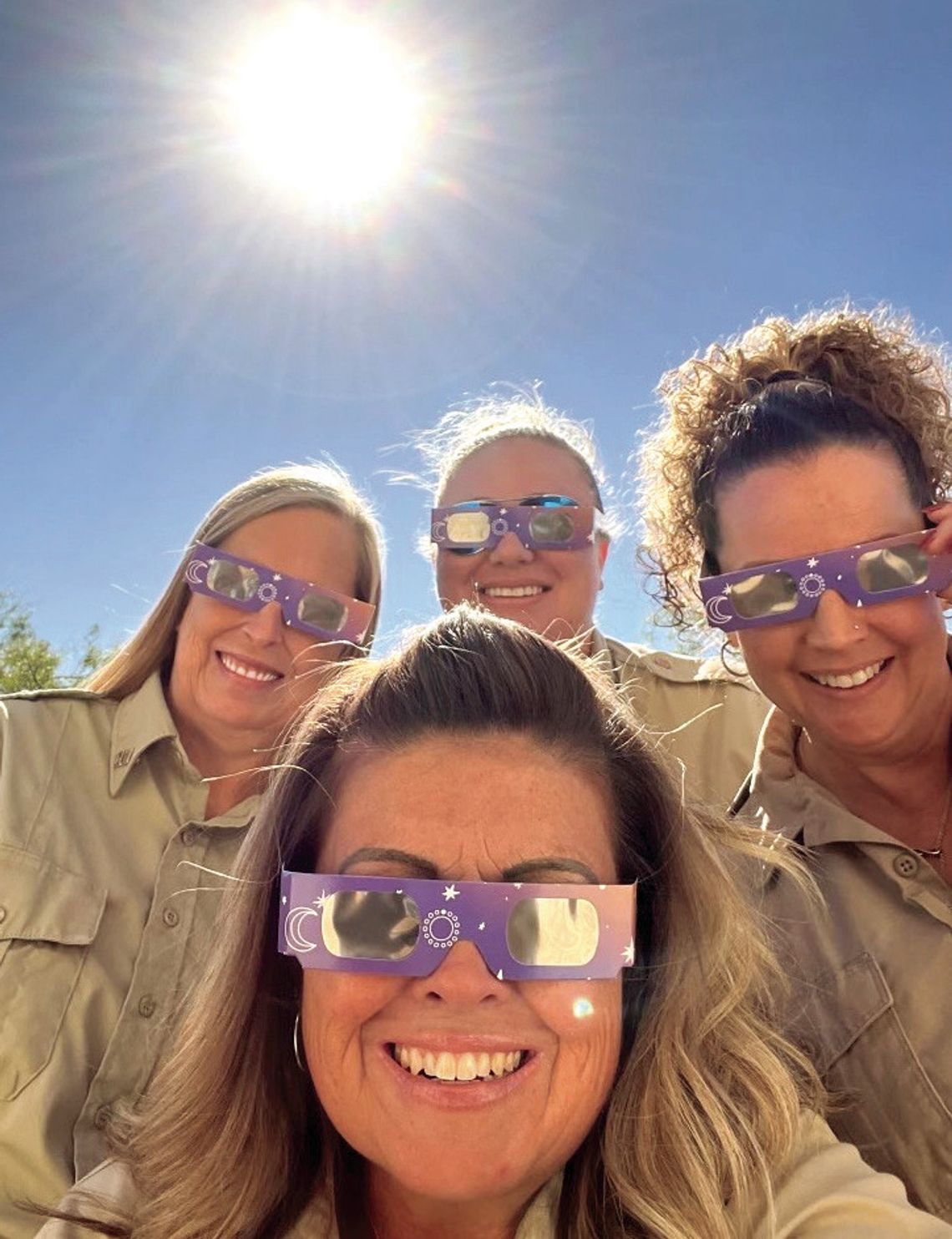


Comment
Comments